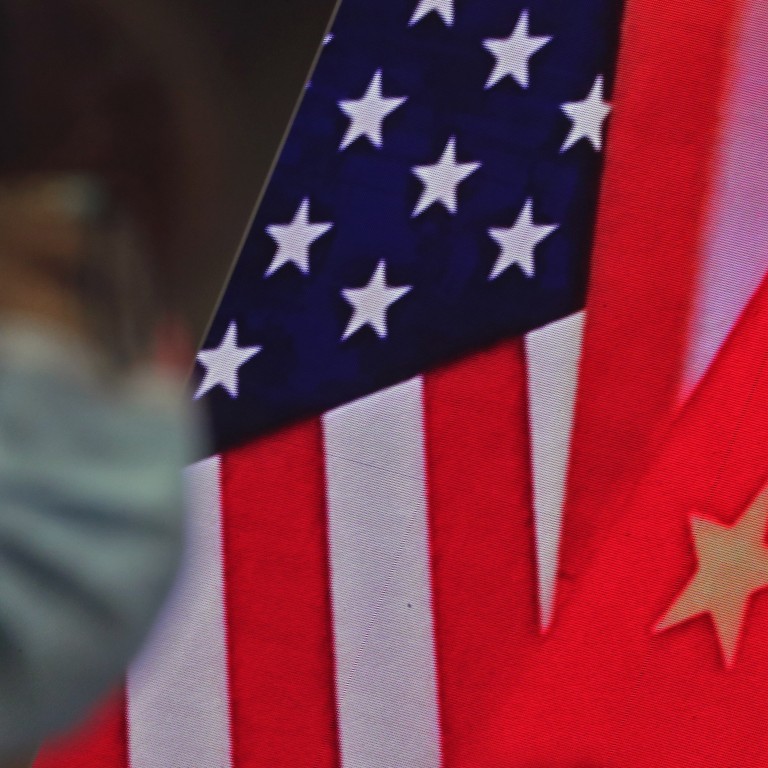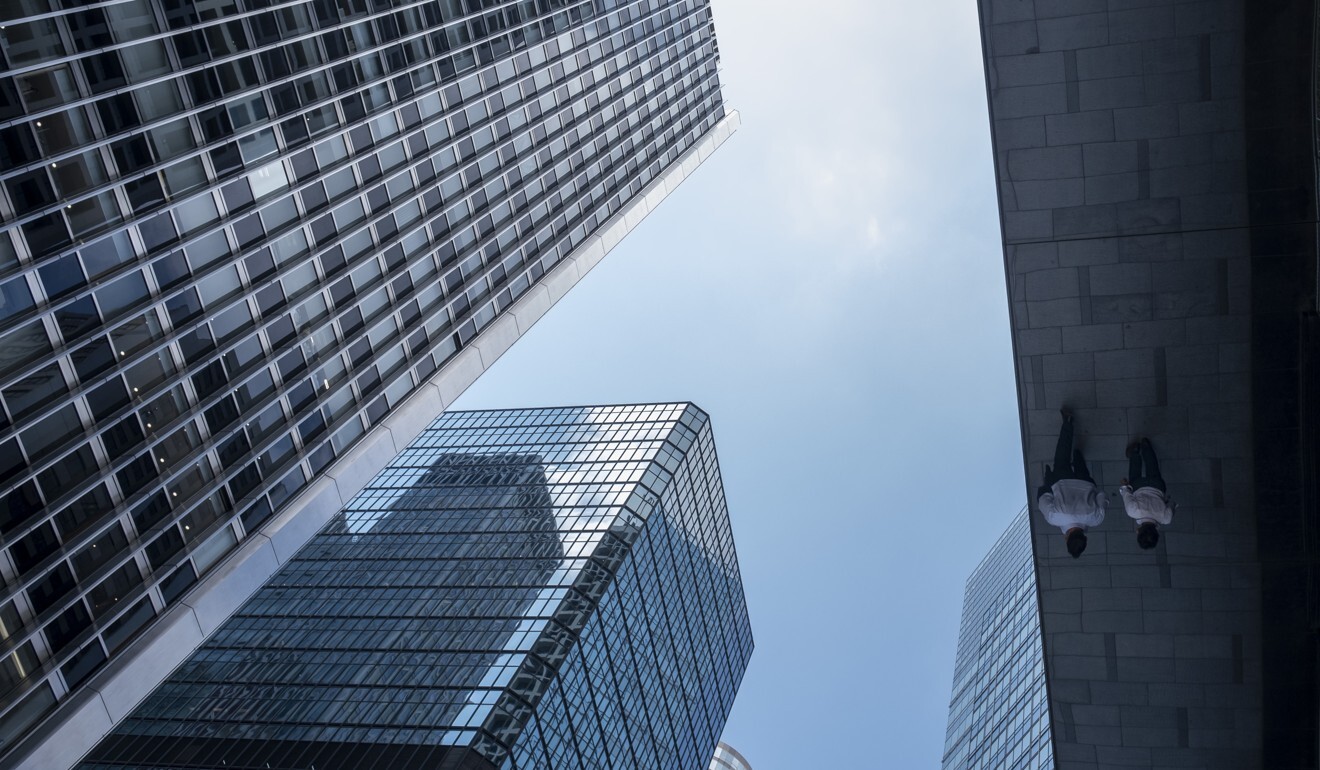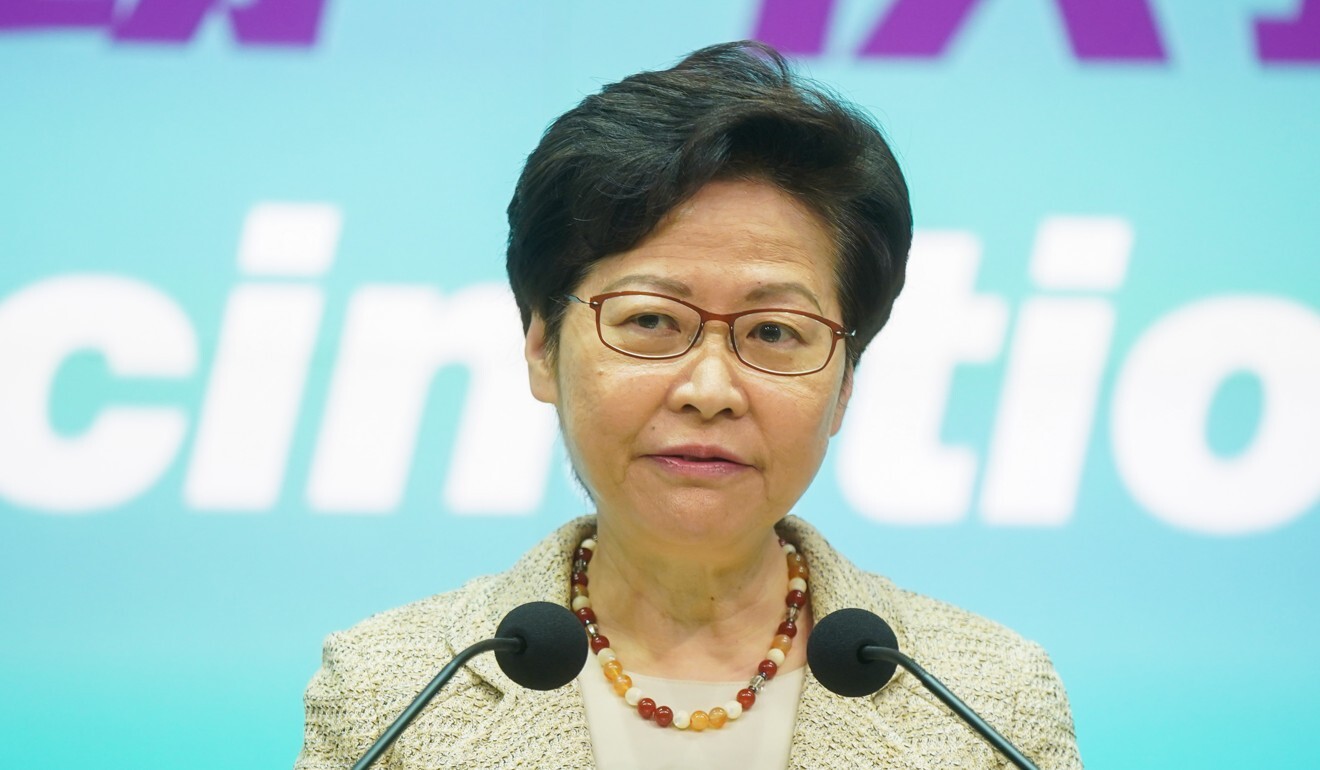
Exclusive | China’s move to impose anti-sanctions law in Hong Kong will not be immediate as local legislation still needed: sources
- Anti-sanctions law still requires local legislation to adapt it to suit city’s needs, sources say
- Local legislative process will allow government some time and leeway to assess impact, or pros and cons of implementation of law, insider says
Sources familiar with the matter gave this undertaking even as several business leaders and analysts called for caution, urging authorities to ensure the application of the law would not threaten the interests of Hong Kong-based multinational technology conglomerates, along with the city’s reputation as a global commercial hub.
Another source said the local legislative process would allow the Hong Kong government some time and leeway to assess the impact, or the pros and cons of the implementation of the law.
“The government will also need time to explain to foreign investors and other stakeholders,” the source added.
Pro-Beijing figures in Hong Kong, however, argued there might not be a need for local legislation, warning that such procedures could potentially take too long and be unproductive as the city had no say on China’s foreign and defence matters.

02:23
China passes anti-sanctions law to counter punitive action by foreign countries
A source told the Post then that the legislation referred to the anti-foreign sanctions law, which took effect in June on the mainland.
The national law allows Beijing to take countermeasures against foreign individuals and entities involved in discriminatory restrictive measures that “violate international laws and basic norms”.
Beijing set to endorse anti-sanctions law next month for Hong Kong
“There may be different ways how the law will apply to Hong Kong. The national security law was promulgated after being inserted into Annex III of the Basic Law, while the national flag and emblem laws were enacted after local legislative and consultative processes,” Chan noted.

Under the Basic Law’s Article 18, national laws do not apply in Hong Kong except for those listed in Annex III. The laws listed there can be applied locally via promulgation or legislation by the city.
The article also specifies that China’s top legislative body, the NPC Standing Committee, after consulting its Basic Law Committee, can add laws into Annex III. But such laws must be confined to those relating to defence and foreign affairs as well as other matters outside the limits of the city’s autonomy.
Examples of national laws that have been applied in Hong Kong include the national emblem, flag and anthem laws. All required local legislation before they were enacted.
In localising the national anthem law, some fine-tuning was made. For example, while the mainland version specifies that violators can be detained for up to 15 days or face a three-year jail term under the criminal code, the Hong Kong version states that anyone found guilty of violating the national anthem law can be jailed for up to three years and fined as much as HK$50,000 (US$6,410).
China’s anti-sanctions law ‘can target individuals, families, organisations’
The mainland version also specifies that the national anthem must be played at the opening and closing sessions of the NPC. It was changed to include official celebrations of the anniversary of Hong Kong’s return from British to Chinese sovereignty in 1997.
The national security law was also imposed by Beijing on Hong Kong and added to Annex III but it came tailor-made, requiring the chief executive to only gazette it for it to become effective.
The sources told the Post the passage of the local legislation for the anti-sanctions law was likely to mirror the legislative process for the anthem law.

“I know some of us may be very concerned. But I think we shouldn’t be too worried for now,” she said.
Legislator Felix Chung Kwok-pan, leader of the Liberal Party, said the business sector hoped the local legislative process could allow for appropriate adaptations to suit Hong Kong’s circumstances.
“I’m not suggesting that we don’t want such a law. But if it will go through the local legislative process, at least the legislature can give inputs, and the business sector can express its views – on how such a law should be enacted without pulling them into too much trouble,” he said.
Chung added there were concerns international firms or banks operating in Hong Kong could find themselves caught in the cross hairs.

Simon Lee Siu-po, co-director of the international business and Chinese enterprise programme at Chinese University, noted that under Article 14 of the law, organisations and individuals that refused to execute or cooperate with the retaliatory measure would be “subject to legal liability”.
Lee said he hoped that during the local legislative process, the “vague” article could be clarified, and some exemptions could be considered to allow companies from third-party countries to stay neutral.
“In special circumstances, can some technology firms choose to represent their own country’s interests? Hong Kong needs to continue to be an externally oriented and open city to remain competitive,” he said.
From 2001 to 2019, the number of mainland and foreign companies’ offices in Hong Kong doubled from 4,467 to 9,040. Among the 9,000 companies, about 1,500 chose Hong Kong as the home of their regional headquarters. They included 278, 232 and 216 from the US, Japan and the mainland, respectively.
The anti-sanctions law, under Article 11 and 12, also specifies that no body or person in the country may help other countries implement measures against China, and organisations or individuals must instead help Beijing authorities to execute retaliatory measures.

Bill Winters, CEO of Standard Chartered, on a call with journalists on Tuesday would only say the bank was prepared to address any issues raised by a new anti-sanctions law.
“We always abide by the laws in the markets where we operate. We’ve also found a way to navigate around the challenges that come up from time to time without compromising any of our underlying requirements,” Winters said. “If this happens at all, we’ll obviously take a good close look, we’ll understand it and [we’ll] navigate through it.”
On a conference call with reporters on Monday, HSBC’s CEO Noel Quinn also said the bank was prepared to address any conflicts created by US-imposed sanctions and the mainland’s new legislation. “It’s complex, we’re navigating it and we’ll continue to navigate that going forward,” he said.
There is very little room for discussion about this law, because it was supposed to apply to the whole of China anyway
Hong Kong’s sole delegate to the NPC Standing Committee, Tam Yiu-chung, declined to comment.
But pro-establishment lawmaker Jimmy Ng Wing-ka, who represents the Chinese Manufacturers’ Association of Hong Kong, said if there was any need for the law to go through local legislation, it was to specify the consequences for those found to be in breach of provisions such as Article 12 and 14.
“There is very little room for discussion about this law, because it was supposed to apply to the whole of China anyway,” he said.
“But if there’s local legislation, I think we can mention what would be the punishment for senior executives or frontline staff who broke the law.”
Ng, a lawyer, also said he believed that even if a local legislative process were needed, Legco would be able to finish scrutinising it and approve it before its term ended at the end of October.

Lau Siu-kai, vice-president of semi-official Beijing think tank the Chinese Association of Hong Kong and Macau Studies, went further by arguing that a local version of the anti-sanctions law was not needed at all.
“Hong Kong has no say in foreign affairs and defence. The central government will decide what and when to impose countermeasures against foreign powers and Hong Kong’s only role is to follow Beijing and execute its decision,” he said.
On how Hong Kong-based multinational firms could cope with potentially conflicting demands from both China and the US, Lau said: “The overseas firms here would make their own assessments on whether they would gain or lose more by following the US directives – which have no legal force – in Hong Kong.”
‘Biggest troublemaker’: Beijing snipes at US amid Asean South China Sea talks
Lau was sceptical whether the US would really punish a global bank in Hong Kong for not following its sanctions to avoid countermeasures by the Chinese side.
Last year, the US Congress passed the Hong Kong Autonomy Act to authorise Washington to punish banks that conduct transactions or deal with mainland and Hong Kong officials being sanctioned for “harming Hong Kong’s autonomy”.
But Lau said: “To date, no bank has been punished under the act. One reason is that the US knows punishing major banks could trigger instability in the international financial transaction system and this would in the end harm US financial markets and its economy.
“The making of an anti-sanctions law is more about creating a deterrent effect, warning the US or foreign forces that they will also have to pay the price if they dare to sanction China or Hong Kong.”


